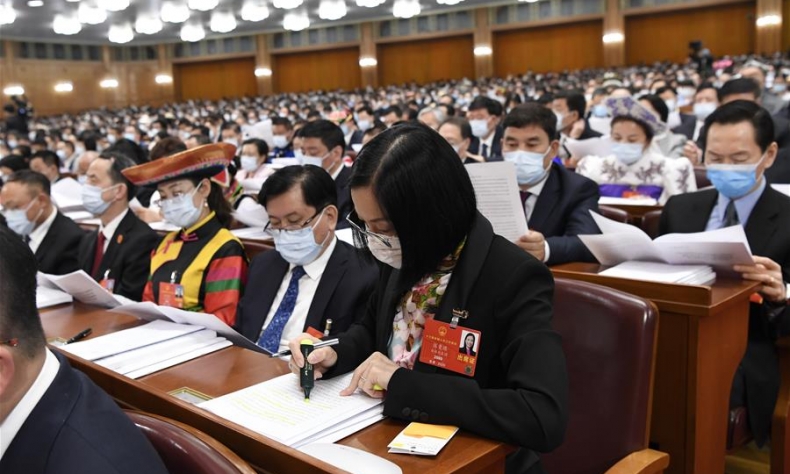Indian Scholar on Govt Work Report: Understanding China at a Special Time

The COVID-19 pandemic has put a brake on economic activities worldwide, and China’s early recovery and return to normal life makes this year’s government work report all the more instructive for much of the world.
This annual presentation of a detailed government work report by Chinese Premier Li Keqiang marks the most masterful start of China’s “two sessions,” which represents the largest political gathering involving more than 5,000 national lawmakers and political advisors. Invariably, this triggers a buzz in the media offering China watchers a window to China’s future directions. This year’s report marks an occasion not only to review China’s major achievements, but also to showcase its vision, guidelines, targets and financial allocations for the ensuing year.
This year, of course, is special for more than one reason. The government work report was awaited rather anxiously, not just in China, but around the world. China remains the growth engine for the world economy that has been facing a deceleration since 2009. It has come to be the largest trading partner for most nations, which makes China’s economic health critical for the economic well-being of the world. This is especially true as more and more partners are joining the Belt and Road Initiative. The COVID-19 pandemic, however, has put a brake on economic activities worldwide, and China’s early recovery and return to normal life makes this year’s government work report all the more instructive for much of the world.
A look at the disheartening projections of the recently launched World Economic Outlook 2020 of the International Monetary Fund makes Premier Li’s assertion of China achieving an impressive growth rate of 6.1 percent last year seem more inspiring. Impacted by the COVID-19 pandemic, however, China also witnessed a 6.8-percent negative growth for the first quarter of this year, which calls for effective and innovative response. Anticipating a certain deceleration in global demand for China’s exports, this year’s report not just alludes to the country’s strategy to improve the consumption willingness and capabilities of domestic residents, but also reiterates commitment to eliminating extreme poverty within its stipulated period, namely, by the end of 2020 – a full decade before the target year of 2030 set by the United Nations Sustainable Development Goals.
China’s government work report used to catch news headlines for announcing its ambitious economic targets such as its annual GDP growth rate, but this year a specific target is missing for China “will face some factors that are difficult to predict in its development due to the great uncertainty regarding the COVID-19 pandemic and the world economic and trade environment.” However, the report promises to soon formulate its 14th Five-Year Plan for 2021 to 2025. The media have also picked up on the plan to “establish sound legal systems and enforcement mechanisms for safeguarding national security” in the two special administrative regions of Hong Kong and Macao.
Employment generation is highlighted in this year’s government work report. Indeed, the word “employment” is mentioned about 30 times in the report that promises to create over nine million new urban jobs this year. Instead of announcing any large-scale financial stimulus to achieve this feat, Premier Li has urged governments at all levels to “tighten their belts” and “adopt all possible measures to bolster employment.”
Meanwhile, the report sheds light on China’s economic engagement with the rest of the world. It promises to work towards joint implementation of the phase one China-U.S. economic and trade agreement and also to further shorten the negative list for foreign investment. As for China’s continued connectivity and infrastructure building with various developing nations, it promises to focus on quality in the joint pursuit of the Belt and Road Initiative.
The author is a professor and chairman of the Centre for International Politics, Organization and Disarmament (CIPOD), School of International Studies, Jawaharlal Nehru University in New Delhi.
 Facebook
Facebook
 Twitter
Twitter
 Linkedin
Linkedin
 Google +
Google +










